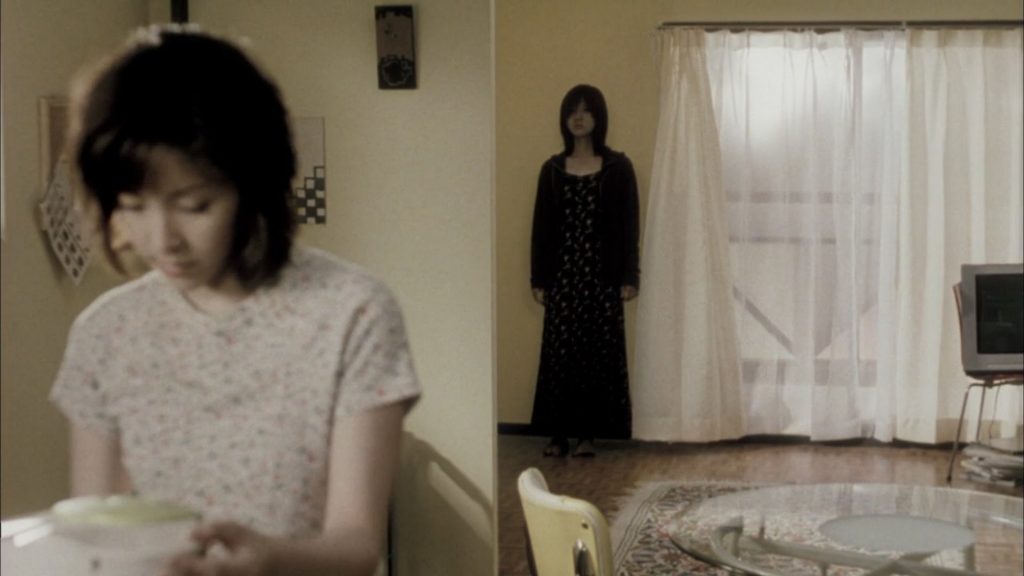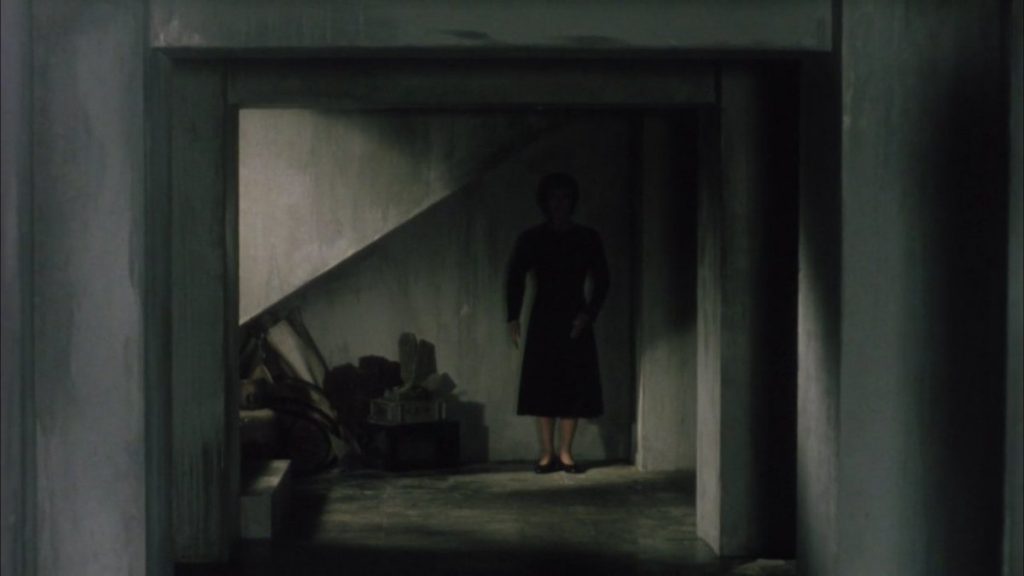
Watching Kiyoshi Kurosawa’s J-Horror classic Pulse now, one of the first things you may notice is the sound of a dial-up modem, or the fact that the internet is accessed by installing software from a CD-ROM. More unusual to contemporary viewers is when computer science student Harue (Koyuki Kato) asks Ryosuke (Haruhiko Kato) why he decided to get onto the internet. At a time when everyone is expected to be on the internet, it seems an unusual question.
That Pulse came out when home internet was still in its relative infancy is particularly impressive given how prescient the film has continually proven itself. In the years that ensued, a minor moral panic occurred when “internet addiction” became a hot-button topic. Reports of people living in squalor, so entranced were they by their online lives, are portended by the grim and grimy locales shown in Pulse.
Telling two simultaneous, nearly parallel stories, Pulse begins with a suicide. Taguchi (Kenzi Mizuhashi) has not been seen for a few days, so his friend Michi (Kumiko Asō) visits to check on him and chase up a disk he had been working on. After she uses a hidden key to get into his house, he hangs himself. At the same time, Ryosuke has connected to the internet and been asked by a mysterious page, “Do you want to meet a ghost?” Shaken, he goes to the experts.
For some of its most memorable and most disconcerting sequences, Pulse uses grainy digital video to show people alone in their homes, surrounded by the ever-present and threatening hum of computer equipment and the malignant blankness of CRT monitors. It’s a ghost story – clearly indebted to Japanese folklore – where computers and the internet are the conduit for destructive visitors.
Disconnection, or the falsehood of online connections, is what the malignant force of the movie preys on. Solitude is so rampant that these denizens of the internet drop like flies and the ghosts are able to spread like a virus (computer or otherwise) and Pulse goes from ghost story to tale of the apocalypse in a painfully subtle, almost imperceptible manner. Kurosawa’s film saw the emotionally destructive power of technology and the internet long before it was a commonplace fixture in everyone’s homes, and watching it now where the web is often the only place we socialise, it is terrifying.

Beyond the crushing delivery of its themes, Pulse is visually elegant and engrossing. Its most horrifying scenes are almost choreographed like dances. The way the terrible creature moves is horrifying, but hard to look away from. The sprawl of Tokyo is magnified to tiny, cluttered apartments, or the harsh lights of the gaming arcade. The image of doors and windows taped shut with bright red electrical tape becomes a haunting image of fear and isolation.
Even when not showing computer screens, the film is shot from an odd distance, often through windows or doorways, partially obscured by the paraphernalia of everyday life. It’s a film that feels lonely from its very first frames. And loneliness is key to its themes. In one scene, Michi speaks to her boss about the strange behaviour of a coworker and she is brushed off. His callousness is emblematic of the deep sadness that takes root in this movie and the tenderness that may be its antidote.
The ghost moves from the cyber world and corrupts the real world, infecting people with an awful, unending loneliness, prompting suicide or in some cases just disappearances. The places where people vanish are marked by body-shaped stains that resemble black mold – perhaps designed to be reminiscent of the damage seen when an undiscovered body is left to rot. The implication – these people died because no one checked on them soon enough.
But when the two storylines collide, it is a turning point in the movie. Togetherness is the only defense against destruction, but also makes us more susceptible to it.
Its ending may be more of a long slow fade out than the eruptive climax that horror viewers are used to (but the ghosts are using dial-up, hello!), and it may be somewhat heavy-handed with its exposition but Pulse feels like a film that will only grow in power and stature as the years go by. Its hopelessly dark tone, its prescience and even its tenderness make it one of the most powerful horror movies of the 21st Century so far.
